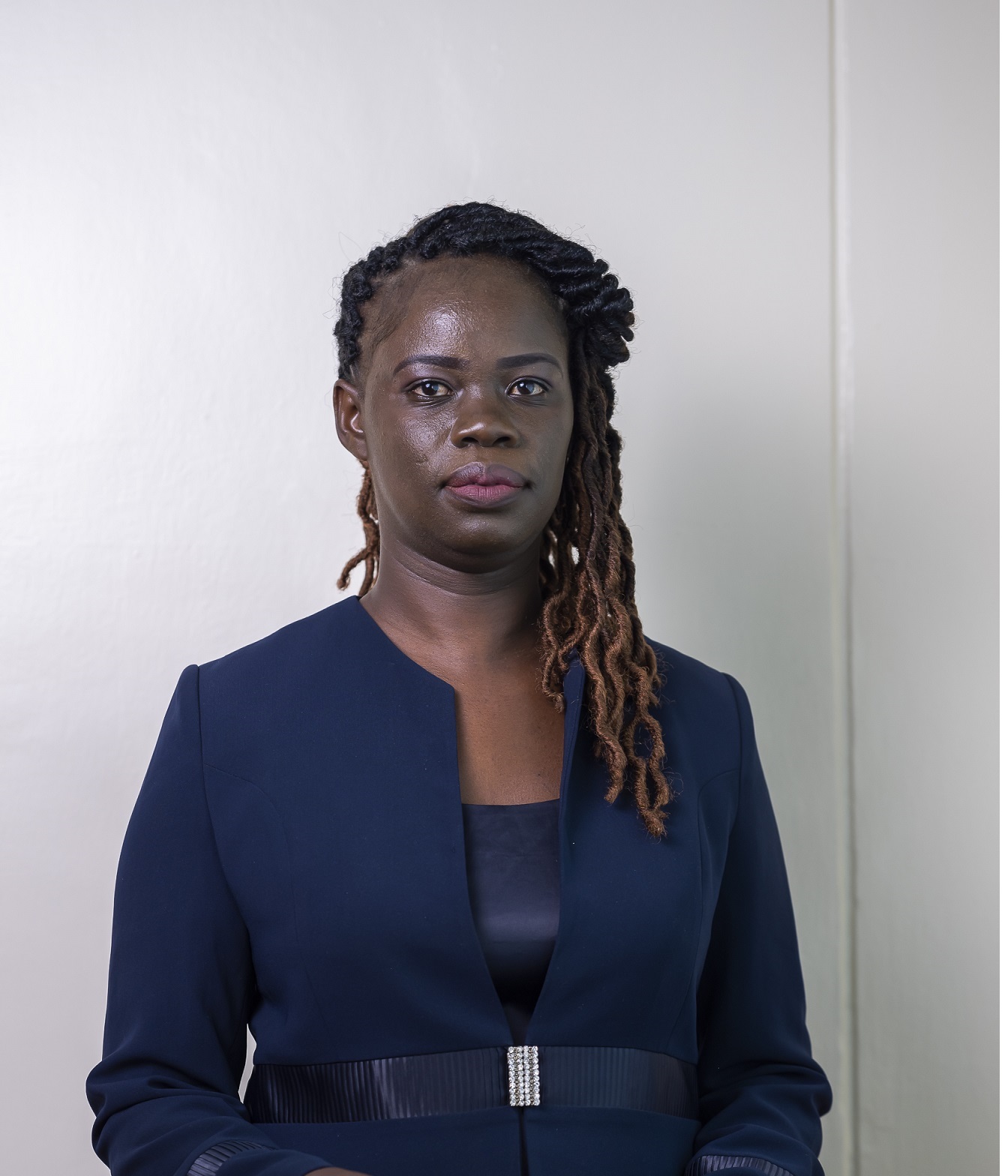Dr. Abigael Okoko
Research Fellow
Dr. Abigael Okoko was a Research Fellow at the Nuvoni Centre for Innovation Research, which hosts the International Centre for Frugal Innovation-Kenya Hub. Abigael is a scholar and researcher. Her research interests revolve around renewable energy, value chain analysis, and water and sanitation with the aim of achieving environmental sustainability through multidisciplinary policy research initiatives. While at NCICR, Abigael coordinated the Energy domain.
Abigael holds a PhD in Environmental Planning and Management from the University of Nairobi where her research focused on the Life Cycle Analysis of Alternative Biomass Energy for Cooking: A Case of Kitui, Kenya and Moshi, Tanzania. She previously worked as a PhD Research Fellow at the Centre for Training and Integrated Research in ASAL Development (CETRAD) in the research project Prospects for Biomass Energy in East Africa, (ProBE). She has also worked at Great Lakes University of Kisumu in teaching and research capacities and as an adjunct Lecturer at the Masinde Muliro University of Science and Technology (MMUST).

Projects at Nuvoni
- Sustainability, Inclusivity and Governance of Mini-grids in Africa (SIGMA)
- Kenya National Electric Cooking Strategy (KNeCS)
- Electric Cooking in Urban Informal Settlements
Publications
- Okoko, A. Reinhard. J, Wymann von Dach. S, Kiteme. B. & Owuor, S. 2018. Life cycle costing of alternative value chains for biomass energy for cooking in Kenya and Tanzania. Journal of Renewable Energy, Volume 2018, pp. 1-12. https://doi.org/10.1155/2018/3939848
- Okoko A.A, Reinhard. J, Wymann von Dach. S, Ehrensperger. A, Zah. R, Kiteme. B. & Owuor, S. 2017. The carbon footprints of alternative value chains for biomass energy for cooking in Kenya and Tanzania. Sustainable energy technology assessments, Vol. 22, pp 124-133: 2017.Available at: https://doi.org/10.1016/j.seta.2017.02.017
- Okoko A. A, Muia A.W, Moturi W.N and Oyake M. 2012. Levels of E.coli contamination of River Awach and household water in Western Kenya; Journal of Environmental Science and Water Resources Vol. 1 (5), pp. 120-126, June 2012.
- Ehrensperger A, Gatimu J, Willi S, Kitala JK, Okoko A, Shuma J, Sago S, Kiteme B, Wymann von Dach S. 2017. What future for cooking with solid biomass? The benefits of improved stoves and micro-gasifiers. ProBE Policy Brief 1. Nairobi, Kenya and Bern, Switzerland. Available at: https://boris.unibe.ch/id/eprint/108592
- Reinhard J, Bär R, Okoko A, Willi S, Zah R, Ehrensperger A, Wymann von Dach S, Kiteme B. 2017. More out of less: future scenarios of clean cooking solutions in East Africa. ProBE Policy Brief 2. Nanyuki, Kenya and Bern, Switzerland. Available at: https://boris.unibe.ch/id/eprint/107554
- Ehrensperger A, Wymann von Dach S, Bar R, Okoko A, Lanen A. 2018. A Burning Challenge: Making Biomass Fuels Sustainable in East Africa. CDE Policy Brief, No. 13. Bern, Switzerland: CDE. Available at: https://boris.unibe.ch/id/eprint/121296
- Okoko A.A, Reinhard. J, Wymann von Dach. S, Ehrensperger. A, Zah. R, Kiteme. B: Carbon Footprints of Alternative Value Chains of Biomass Energy for Cooking around Mountain Regions: A case of Moshi, Tanzania. In 2017 Mountain Research Conference. African mountain ecosystems under global change: Linking biodiversity, biotic interactions and biogeochemical ecosystem processes, Moshi, Kilimanjaro Region, Tanzania. 25.02.2017.
- Okoko A.A, Reinhard. J, Wymann von Dach. S, Ehrensperger. A, Zah. R, Kiteme. B: Greenhouse Gas Assessment of Alternative Value Chains for Biomass Energy for Cooking in Kenya and Tanzania. In 2016 International Tech4Dev Conference. UNESCO Chair in Technologies for Development: From Innovation to Social Impact. SwissTech Convention Centre EPFL, Lausanne, Switzerland. 02-04.05.2016.
Perspective
- Reaching the Hard-to-Reach Areas: A Case of Electrification of Remote Areas in Kenya
- Anchoring Productive Use on Mini Grids.
Conference
- DSA2022: Just sustainable futures in an urbanising and mobile world conference, University College London.
- Okoko A.A, Onjala B, Onsongo E, Wambua M, Nyumba R: Are mini grids a solution to energy poverty? A case of mini grids in Kenya: Understanding the lived experiences of energy poverty in the Global North and South.
Physical Address
No. MK088, Ushindi West Avenue,
Mukuyu Rd (Mukuyu West Wing), Thome 1
Nairobi, Kenya
Organization
Subscribe for newsletter & get news, events and publications updates
Contact Us
Office Tel: (+254) 20 8009928 |
Mobile: (+254) 706 324 467
© 2025 Nuvoni Research

